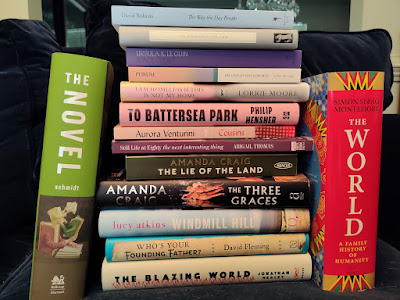
Finished:
The Amalgamation Polka by Stephen Wright:
"From the back door he could see a tattered strand of gray smoke lazily unwinding from the chimney of the kitchen outbuilding, and within a sense of shadowy movement that drew Liberty to investigate. There he found an elderly woman with no teeth and big bony hands who seemed not at all surprised by the sudden appearance of a strange man in her kitchen. She was standing at a table and shaving a monkey in a bowl."
Continued:
Beowulf as translated by Seamus Heaney:
She had been forced down into fearful waters,
the cold depths, after Cain had killed
his father's son, felled his own
brother with a sword. Branded an outlaw,
marked by having murdered, he moved into the wilds,
shunned company and joy. And from Cain there sprang
misbeggoten spirits, among them Grendel,
the banished and accursed, due to come to grips
with that watcher in Heorot waiting to do battle.
Started:
Home Ground by Lynn Freed:
"'The theatre," I repeated. Since Gramma's death I had been thinking a lot about the theatre. How it made us different from other people. Not just the way we were, but how we thought of ourselves. How other people thought of us. I had begun to understand that losing the theatre, or even half of it, would have cast us all out like orphans. Without it we would have been exposed to the small concerns of ordinary lives. My father to a job like other fathers. My mother to the lives of other women. Sewing circles. School fetes. And the causes of the unfortunate. It was unimaginable. To have to lose our audience. To measure our happiness in normal ways. To look with clear eyes into the face of Catherine's withdrawal. Or the pathology of Valerie's viciousness. Or even the first signs of my own aversion, like some rudimentary allergy, to the discrepancy I was beginning to find everywhere between the naming of things and the nature of the things themselves."
Used bookstore finds:
The Things They Carried by Tim O'Brien:
"A true war story is never moral. It does not instruct, nor encourage virtue, nor suggest models of proper human behavior, nor restrain men from doing the things men have always done. If a story seems moral, do not believe it. If at the end of a war story you feel uplifted, or if you feel that some small bit of rectitude has been salvaged from the larger waste, then you have been made the victim of a very old and terrible lie. There is no rectitude whatsoever. There is no virtue. As a first rule of thumb, therefore, you can tell a true war story by its absolute and uncompromising allegiance to obscenity and evil. Listen to Rat Kiley. Cooze, he says. He does not say bitch. He certainly does not say woman, or girl. He says cooze. Then he spits and stares. He's nineteen years old-it's too much for him-so he looks at you with those big sad gentle killer eyes and says cooze, because his friend is dead, and because it's so incredibly sad and true: she never wrote back."
Dancing at the Rascal Fair by Ivan Doig
"To say the truth, it was the water winding its way through that still valley-its heartstream, so to speak-that captured me then and there. When the summitline up along these mountains, the Continental Divide, halved the moisture of America's sky, the share beyond went west to the Pacific Ocean while that of this slope was destined to the Atlantic.
Are you telling me, Rob shipboard,
we're already on water from Montana, out here? Aye, yes and yea, Rob. This supple little creek below me, this North Fork, was the start of that water which eventually touched into the Atlantic. This was the first flowing root of that pattern of waves I watched and watched from the deck of the emigrant ship. But greatly more than that, too, this quiet creek. Here at last was water in its proper dose for me. Plentiful fluid fuel for grass and hay, according to the browsing cows and the green pockets of meadow between the creek's twists. Shelter from the wind and whatever rode it in winter stood in thick evidence, creekbank growth of big willows and frequent groves of quaking ash. The occasional ponds behind beaver dams meant trout, a gospel according to Lucas. And by its thin glitter down there and the glassy shallowness of the main creek back where the mare and I crossed, not any of this North Fork ran deep enough to drown more of me than my knees."
The Living by Annie Dillard
"The world just disappeared from your side, John Ireland thought over the next months; the people you knew were above the surface one minute, and under it the next, as if they had burst through ice. They went down stiff and upright in their filled gum boots and soaked skirts; they stood dead on the bottom and swayed with the currents like fixed kelp, his mother and father and sisters and brothers standing in a row on the ocean floor."
The Question of Bruno by Aleksandar Hemon:
"It took us only four hours to get home from the coast and I slept the whole time, oblivious of the heat, until we reached Sarajevo. When we got home, the shriveled plants and flowers were in the midst of the setting-sun orange spill. All the plants had withered, because the neighbor who was supposed to water them died of a sudden heart attack. The cat, having not been fed for more than a week, was emaciated and nearly mad with hunger. I would call her, but she wouldn't come to me; she would just look at me with irreversible hatred."



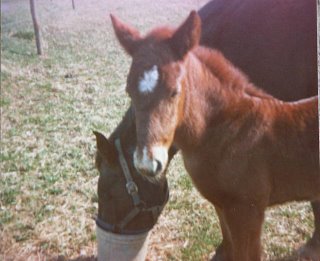
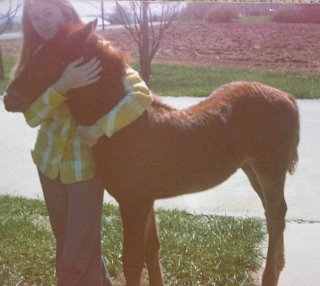
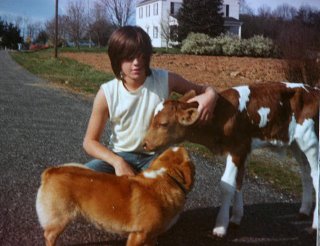
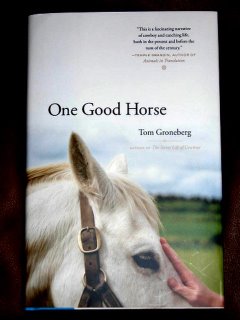 The Secret Life of Cowboys is the account of Groneberg's efforts to build a life in the West, to make it as a day hand on various Montana ranches before buying, and then failing at operating, his own ranch with wife Jennifer. "I chased a dream and it kicked me in the teeth. Yet I find myself falling for it again and again, " he admits. The book ends with Groneberg still trying to make it as a modern day cowboy, and celebrating the second birthday of his son Connor.
The Secret Life of Cowboys is the account of Groneberg's efforts to build a life in the West, to make it as a day hand on various Montana ranches before buying, and then failing at operating, his own ranch with wife Jennifer. "I chased a dream and it kicked me in the teeth. Yet I find myself falling for it again and again, " he admits. The book ends with Groneberg still trying to make it as a modern day cowboy, and celebrating the second birthday of his son Connor.

